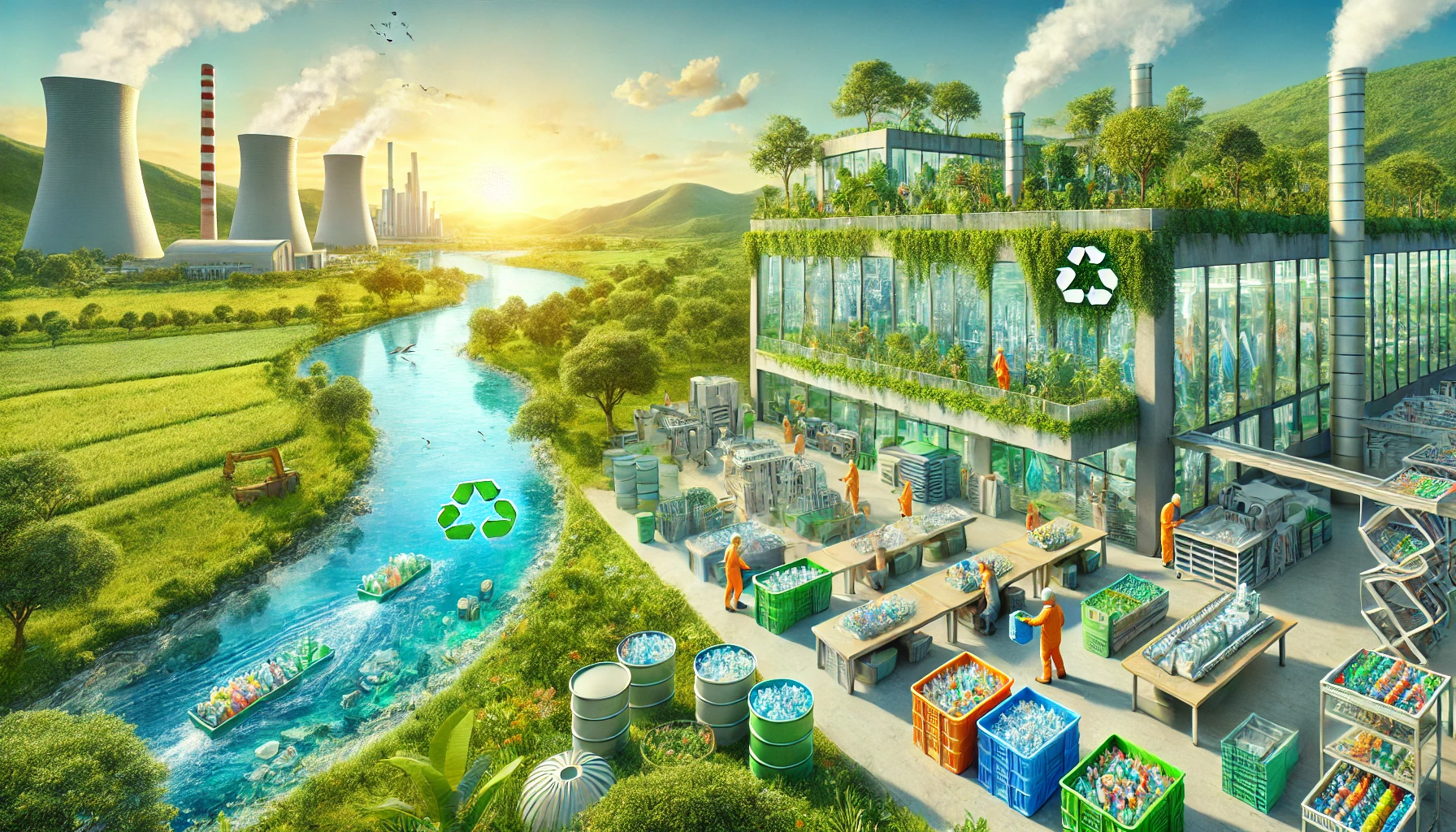From Waste to Worth: Revolutionizing Plastic Use with Circular Economy Strategies
The study advocates for a global shift from a linear to a circular economy to address the growing problem of single-use plastic waste in the food and beverage industry, emphasizing the need for innovative recycling strategies, global collaboration, and sustainable practices to mitigate environmental and health impacts.

A study, carried out by a team of researchers from institutions such as The Green Institute in Nigeria and the University of Birmingham, addresses the growing problem of single-use plastic waste, particularly within the food and beverage industry. This sector is a significant contributor to plastic pollution, largely due to its heavy reliance on single-use plastics (SUPs) for packaging. The research highlights how this dependency is driven by the increasing global population, which perpetuates a linear economy model that follows a 'take, make, use, dispose' approach. This unsustainable model has led to a dramatic rise in plastic waste, and if current practices persist, the situation is expected to worsen drastically by 2050.
Shifting from a Linear to a Circular Economy
The paper emphasizes the need for a shift towards a circular economy, a model that prioritizes the retention of resources, recovery of materials, and extension of product lifecycles. The researchers argue that adopting this approach is essential for mitigating the environmental impact of single-use plastics. The study delves into the environmental and health consequences of SUPs, noting that their production, use, and disposal contribute significantly to climate change, biodiversity loss, and pollution. Single-use plastics are particularly problematic because they do not degrade easily and accumulate in the environment, posing severe risks to wildlife and ecosystems. For instance, marine life is particularly vulnerable to plastic pollution, with animals often ingesting or becoming entangled in plastic debris, leading to injuries or death. Moreover, the degradation of plastics into microplastics further exacerbates environmental contamination, as these tiny particles are found in soil, rivers, oceans, and even the air we breathe. This widespread presence of microplastics has raised concerns about their potential impact on human health, as they can enter the human body through ingestion, inhalation, and skin contact, leading to various health issues.
Innovative Strategies for Recycling and Reuse
To address these challenges, the study explores various strategies and technologies for recycling and reusing plastic waste within the framework of a circular economy. Mechanical recycling, which involves sorting, cleaning, and processing plastic waste into granules for creating new products, is one such strategy. Although this method is cost-effective, it is limited in its ability to recycle mixed or contaminated plastics. Chemical recycling, on the other hand, offers a promising solution by breaking down plastics into their basic chemical components, which can then be used to produce new plastics or other chemicals. This method is particularly useful for plastics that are difficult to recycle mechanically. The promotion of biodegradable plastics is another strategy discussed in the study. These plastics, derived from renewable sources, are designed to biodegrade under specific conditions, reducing the environmental impact compared to conventional plastics. However, the effectiveness of biodegradable plastics depends on proper management, as they may not fully degrade in all environments.
Upcycling and Waste-to-Energy Conversion
The study also highlights the potential of upcycling, where plastic waste is transformed into higher-value products without altering its fundamental structure. This approach not only diverts plastic waste from landfills but also creates market value for recycled products. Additionally, waste-to-energy conversion, achieved through incineration, addresses waste disposal while generating energy. The adoption of extended producer responsibility (EPR) policies is another key strategy. These policies shift the responsibility for end-of-life management from consumers to manufacturers, encouraging more eco-conscious product design and waste reduction.
Global Collaboration and Policy Implementation
The researchers stress the importance of global collaboration and the proactive implementation of supportive policies to make the circular economy a viable alternative to the current linear model. They argue that successful implementation of a circular economy in the food and beverage industry requires the involvement of all stakeholders, including waste processors, waste generators, and government institutions. This collaborative approach is necessary to overcome the challenges associated with transitioning from a linear to a circular economy. The study concludes with several recommendations aimed at reducing the environmental footprint of single-use plastics. These include strengthening regulations on the production and consumption of SUPs, encouraging industry collaboration to develop and implement sustainable packaging solutions, and promoting public awareness campaigns to shift consumer behavior towards more eco-friendly options.
A Call to Action for a Sustainable Future
The authors also call for increased investment in research and development to create sustainable alternatives to plastics and improve recycling technologies. Promoting biodegradable solutions and expanding EPR initiatives are also emphasized as crucial steps in this transition. In summary, the study presents a comprehensive framework for tackling single-use plastic waste in the food and beverage industry. It underscores the urgent need for a global shift towards a circular economy to ensure a sustainable future, where resources are retained, materials are recovered, and the environmental impact of plastic waste is significantly reduced. The research calls for immediate action to address this critical issue, highlighting that the future of our planet depends on our ability to move away from the linear economy model and embrace sustainable practices that prioritize long-term environmental health and human well-being.
- FIRST PUBLISHED IN:
- Devdiscourse










